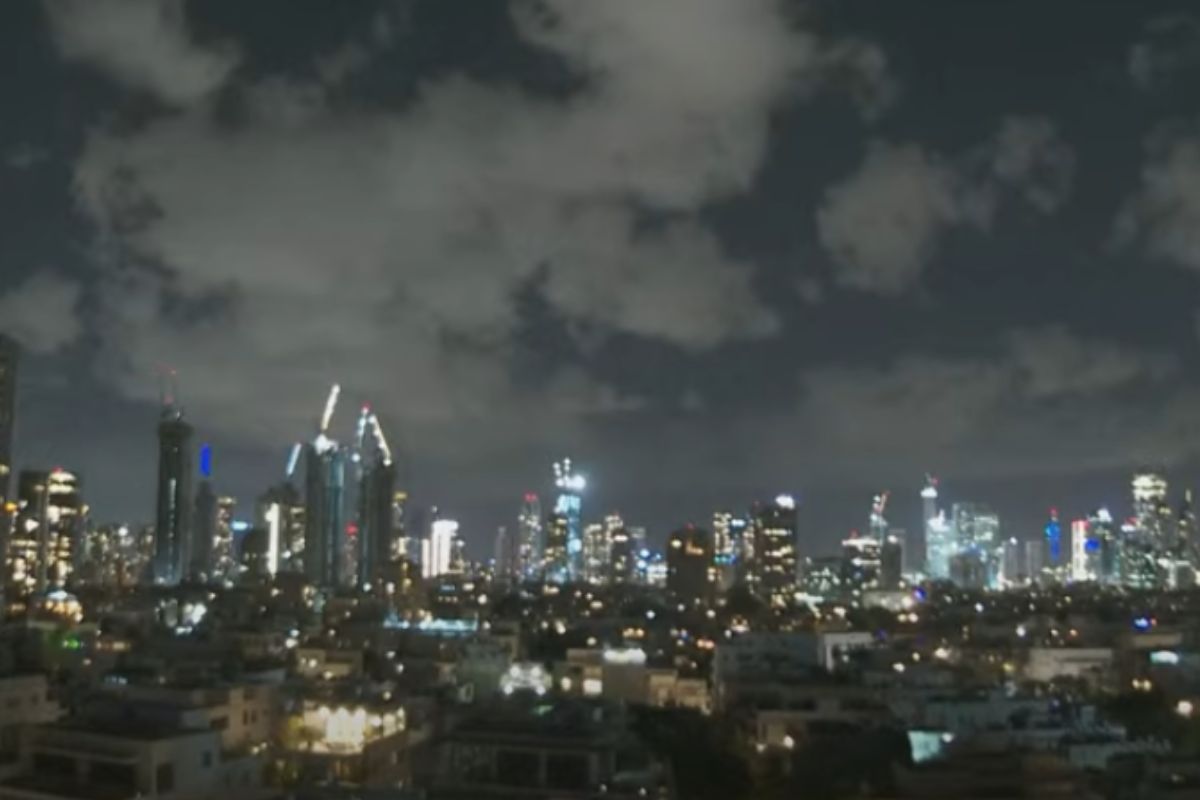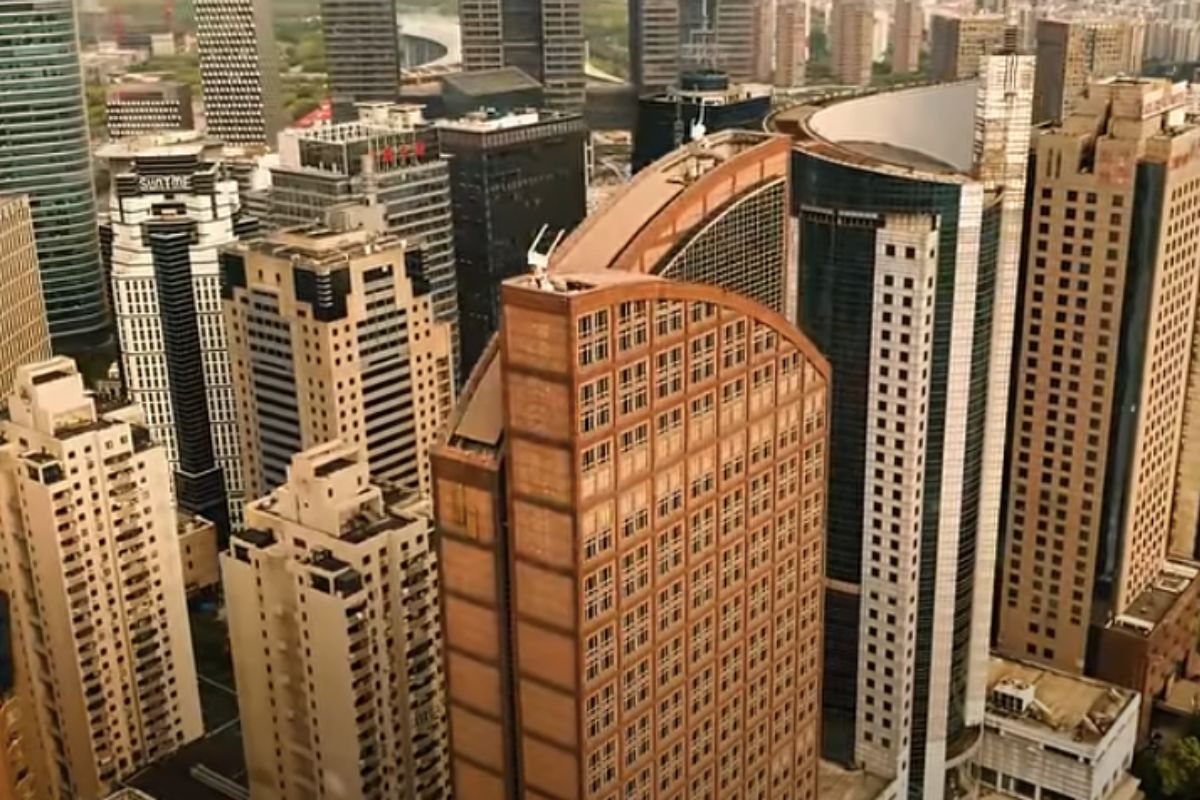
Iran wants more blood spilled in the Lebanon war. Iran’s Foreign Minister Abbas Araghchi openly said so hours before Iran launched a missile attack on Israel.
Some 180 rockets were launched by Iran on Tuesday (October 1) night, reported the Jerusalem Post.
The Iranians struck within a day of the Israel Defence Forces’ (IDF’s) limited ground raids on Lebanon and Hezbollah’s retaliatory missile strike on Tel Aviv.
Terror attack
Besides the missile attack, Israel was also rocked by a terrorist incident. Six people were killed and at least 17 wounded in Jaffa, in central Israel, in a shooting near a light rail station. Two terrorists were shot dead by security forces.
A Palestinian worker from Gaza was reportedly killed by fragments of rockets that fell in the city of Jericho in the West Bank. Missiles were also reported to have fallen in Tel Aviv, Beersheba and a few other places.
Israeli air defences shot down dozens of missiles that flew over Syria, reported Reuters.
Why missile attack?
Iran’s Revolutionary Guards said the attack was in retaliation for the assassination of the Hezbollah leader Hassan Nasrallah, killed in an Israeli air strike in Beirut on Friday (September 27)
Iran’s supreme leader Ayatollah Ali Khamenei ordered the missile attack from a secure location.
Iran warned Israel and the United States against any retaliatory action.
Israel and US issue warnings
However, the Israeli Defence Forces chief spokesman Daniel Hagari responded with a warning, “We have plans. There will be consequences.” No Israelis have been injured, he added. Israel’s air force will continue conducting strikes throughout the Middle East.
“A direct military attack from Iran against Israel will carry severe consequences for Iran,” said a US official.
Washington warned Israel against an imminent Iranian missile attack.
The United States is sending a “few thousand” more troops to the Middle East, raising the total number of US troops there to 43,000, reports AP.
Tribute to martyrs
The Iranian Foreign Minister Abbas Araghchi openly spoke of Hezbollah drawing strength from the blood of martyrs such as the Hezbollah leader Hassan Nasrallah.
He said, “The blood of Shaheed (martyr) Nasrallah will even be more effective [ than he himself],” reported the Tehran Times. “Our enemies are ignorant of the fact that our main weapon is the blood of martyrs,” he added.
In the war with Israel, Hezbollah has experienced mass casualties from exploding pagers and walkie-talkies, a wave of assassinations of its military commanders and devastating air strikes which have killed civilians and militants alike.
But far from weakening the Hezbollah, the bloodshed has strengthened their resolve to fight the Israelis, according to the Iranian minister.
Prior Iran missile attack on Israel
Iran attacked Israel earlier also this year.
In April, Iran launched a wave of drones and missiles towards Israel in retaliation for a suspected Israeli strike on an Iranian diplomatic complex in Syria. But 99 per cent of the barrage of 170 drones and 120 missiles were intercepted by the Israelis and their partners, according to the Israeli military.
Israel launched ground raids on Lebanon early on Tuesday (October 1) to destroy tunnels, staging posts and other infrastructure created by the Hezbollah in border areas to attack or infiltrate Israel. Israel said it launched the raids to prevent another Hamas-style attack on the country that led to the war in Gaza.
Lebanese troops pulled back from the border with Israel late on Monday (September 30) as an Israeli ground invasion looked imminent, reported Reuters.
First, Second and Third Lebanon War
This is the third Lebanon war.
In the first Lebanon War in 1982, Israel fought the Palestine Liberation Organization (PLO) and maintained a military presence in southern Lebanon till May 2000.
The Second Lebanon War erupted when Hezbollah attacked an Israeli military convoy, killing three Israeli soldiers and abducting two others. The conflict raged from July 12 to August 14, 2006, and claimed the lives of more than 1,000 Lebanese and over 100 Israelis. Hezbollah emerged stronger from the war, which ended with a United Nations international peacekeeping force (UNIFIL) deployed in southern Lebanon.
Toll in Lebanon
In the current conflict, the just-begun ground raids have been preceded by devastating air strikes. Hundreds of people have been killed and about a million displaced in Lebanon, according to CNN. Besides the limited ground raids, the aerial offensive continues. The IDF reported fresh air strikes on south Beirut, a Hezbollah stronghold, reported Naharnet, a Lebanese portal.
A Jerusalem Post correspondent wrote after the missile attack: “As I stood on my balcony, the sirens sounding around me, watching the Iranian missiles fly overhead, it was clear the dangerous power Iran has unleashed. Iran is raining missiles on Israel and the region. The whole region is aflame with violence and war because of Iran. Hezbollah is a threat because of Iran. Hamas is a threat because of Iran. The West Bank is boiling over because of Iran. The Houthis are attacking Israel because of Iran. The Iraqi militias are attacking Israel because of Iran. These threats must stop, and this cannot become a new normal.”
People who have lost their homes and loved ones in Gaza or Beirut because of the war will, on the other hand, blame the Israelis. Who will help them, when will peace get a chance?






